The silent massacre that plagues the prisons of Brazil
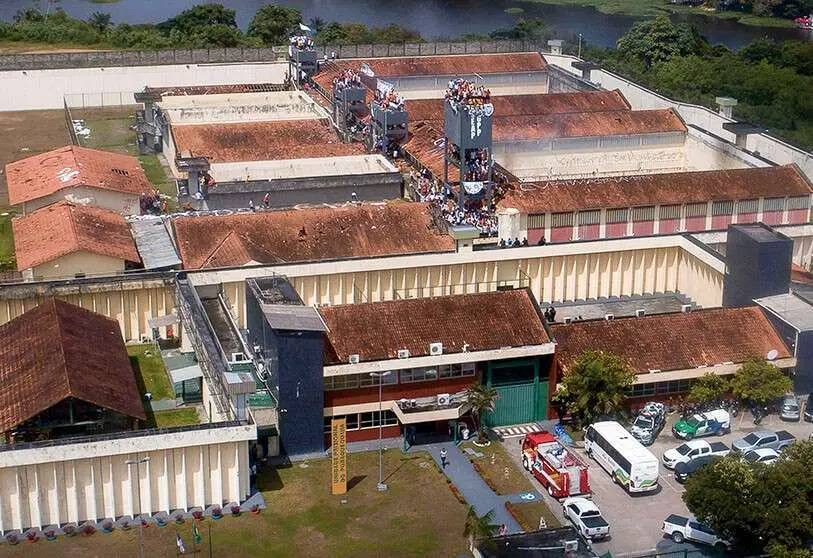
"The most disturbing aspect of prison life is the isolation. There is no beginning and no end, only your own mind, which is sometimes deceptive," wrote activist Nelson Mandela while he was in Robben Island prison, unaware that several decades later prisoners in jails like those in Brazil would have to face an unprecedented health crisis caused by a virus that has been able to change the world order as we knew it. The United Nations (UN) and the Organization of American States (OAS) have received a formal complaint from more than 200 organizations and human rights defenders against the government of Jair Bolsonaro, which they accuse of neglecting the situation of the pandemic in prisons and of leading a "genocidal policy".
The 213 organizations and entities signing the document have presented this complaint to the United Nations (UN) and the Inter-American Commission on Human Rights (IACHR), a group related to the Organization of American States (OAS), as well as to the UN High Commissioner for Human Rights, Michelle Bachelet. These institutions fear that the coronavirus pandemic will create the right scenario for the practice of enforced disappearances.
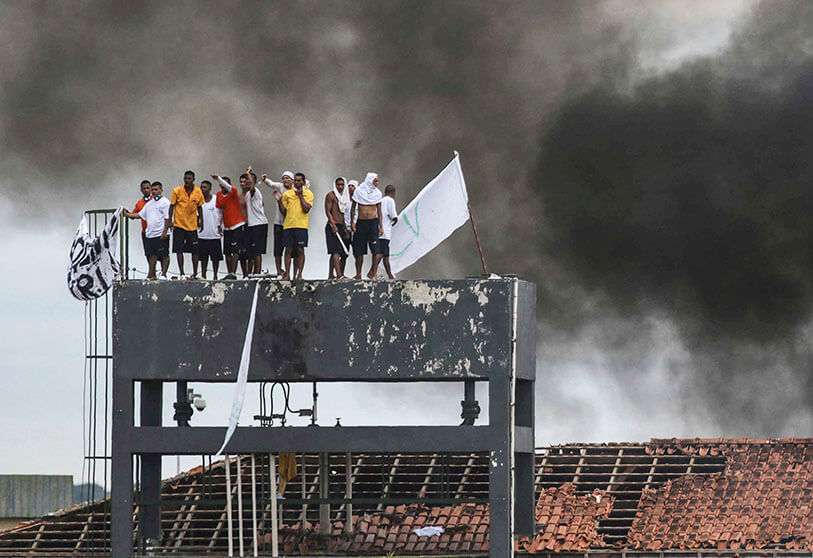
The Declaration on the Protection of All Persons from Enforced Disappearance states that enforced disappearances occur whenever "persons are arrested, detained or abducted against their will or otherwise deprived of their liberty by government agents of any sector or level, by organized groups or by private persons acting on behalf of, or with the support, direct or indirect, consent or acquiescence of the Government, and who then refuse to disclose the fate or whereabouts of those persons or to acknowledge that they are deprived of their liberty, thereby placing them outside the protection of the law".
"We have not yet reached the top of the contagion curve. However, we are concerned that the various unrecorded cases and the lack of transparency allow the practice of mass disappearance of people in the Brazilian prison system," these organizations warned in an official statement that was reported by the Brazilian newspaper UOL. According to the complaint presented to the UN, "there is a worsening of the situation in Brazilian prisons, due to the accelerated spread of the COVID-19 pandemic".
In this context, these institutions have asked the UN to question the Brazilian state about the absence of emergency measures to control the exponential growth in the number of deaths in prisons. "With the measures of systematic incommunicability and the lack of a serious and responsible policy, the Brazilian State is deepening its colonial and genocidal policy, endangering the physical integrity and life of almost one million people".
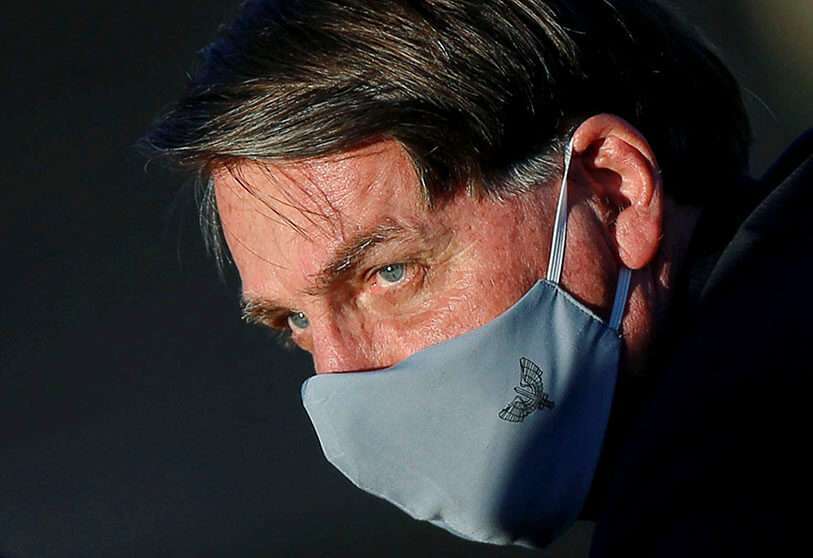
"This scenario deepens the distressing feeling of waiting for death behind bars and highlights the practice of torture and degrading, inhuman and cruel treatment of prisoners. It is further aggravated by the situation in which these prisoners live. A crossroads where they can die of hunger, tuberculosis or coronavirus", they stated in this statement in which they urge the Brazilian State to assume the gravity of the situation and "recognize the humanity of the people who are imprisoned". "It is up to the Brazilian State to guarantee lives and it is prohibited to decree generalized and systematically cruel death sentences", they added.
Brazil is considered the third country with the highest number of prisoners in the world -- some 750,000 -- behind only the United States and China. According to this report, the death rates from this pathogen in prisons are already higher than the numbers outside prison. "The situation becomes even more critical with the National Penitentiary Department's finding that within prison walls the coronavirus lethality is five times higher than that of society infected outside. Furthermore, the first death within the prisons occurred nine days after the first confirmed case was recorded, while in the general population it occurred 20 days later. In other words, people inside the prison die almost twice as fast as outside," the entities have warned.
In this document, the NGOs also criticise the imprecision and out-of-date nature of the data, emphasising that this situation affects not only the prisoners but also their families. "It is essential that urgent measures are taken to reverse this situation, especially in a country where enforced disappearances are part of the local reality," they stressed. "Brazil's prison policy moves in a direction diametrically opposed to the decisions of the World Health Organization and other international organizations, since it has not released people who are at risk, nor has it taken the necessary measures to contain the spread of the virus," says the document to which the EFE news agency also had access.
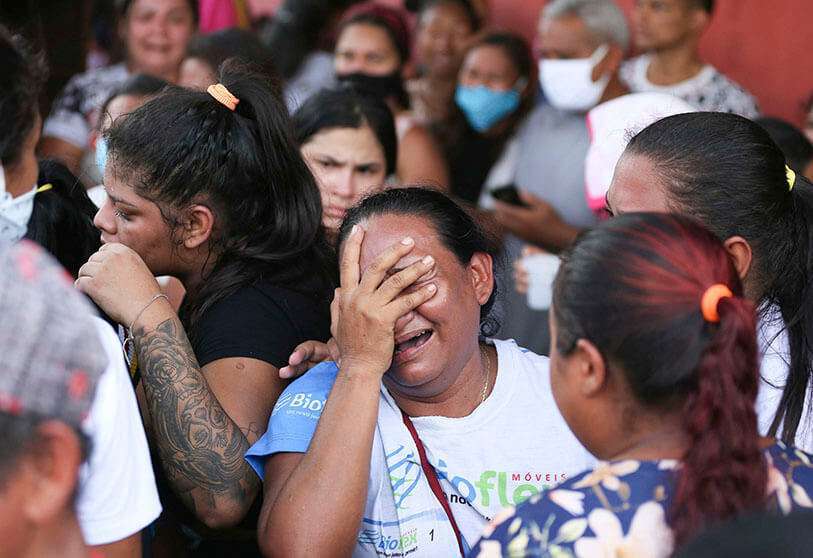
The Brazilian newspaper UOL Noticias has explained that the data collected in the complaint show the "degree of negligence" of the state regarding the situation in the prisons. According to these figures, on average, 31 percent of the prison units have no health coverage. "There is one doctor for every 687 prisoners, while on the outside there is one doctor for every 460 people. Therefore, about 456 prisons in the country have no medical assistance," they have stated.
The pandemic, the overcrowding and the instability that characterize these places have created the perfect breeding ground for the emergence of rebellions in places like Goiás, Pernambuco, Sao Paulo or Amazonas. "These four rebellions have similar characteristics that reveal the extreme institutional fragility of Brazilian prisons. Sickness, pain and fear of death without assistance are the reasons that led to the outbreak of these protests. It should be noted that such uprisings by the prison population are often subject to severe repression by the security forces, which increases our concern for any violations that may have been committed during this period, since it has not been possible to have precise information on the extent of possible practices of torture and ill-treatment employed by these institutions in containing the disturbances", point out the more than 200 NGOs responsible for writing this document.
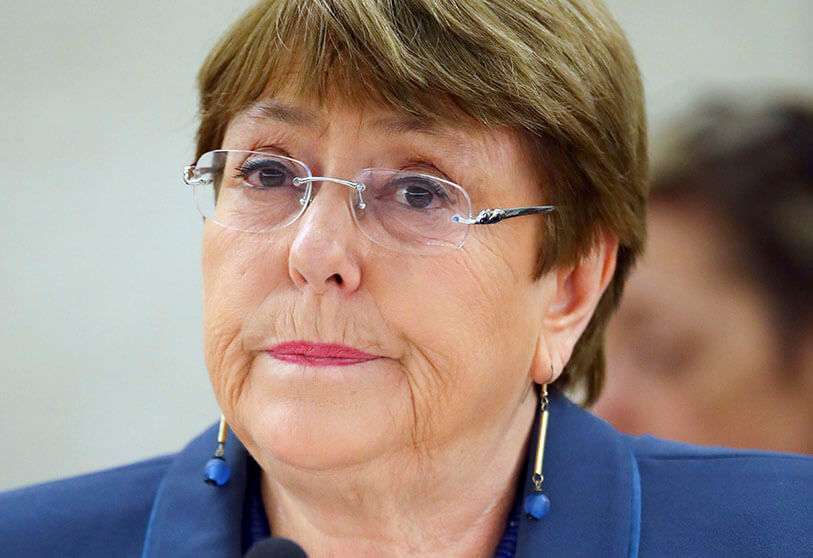
At the end of March, the United Nations High Commissioner for Human Rights, Michelle Bachelet, urged governments to reduce the prison population and to release the "most vulnerable" prisoners. At the time, the UN had already warned that the coronavirus had begun to spread in prisons, jails and migrant detention centers, as well as in hospices and psychiatric hospitals. "The structural health crisis in the Brazilian prison system is aggravated by overcrowding, low nutritional quality of food, significant presence of infectious diseases, low number of professionals in the various areas of social assistance or security. All of this has turned prisons into a kind of pressure cooker that is about to explode," they said in this statement.
The more than 200 signatories have also submitted a list of applications with the hope that, with international action, the Latin American nation's government will take responsibility for this crisis. Thus, first of all, they have asked for the publication of truthful information on the serious situation of persons deprived of their liberty in prison. Secondly, that a meeting be held with some of the highest representatives of human rights organisations such as Michelle Bachelet, in order to deepen the dialogue on the situation of people in prison in Brazil.
On the other hand, these organizations demand that the Judiciary pay more attention to the seriousness of the situation, evaluating the requests for freedom presented, in accordance with the determinations of the World Health Organization (WHO). In addition, a series of recommendations have been given to the Brazilian State, such as to appoint an independent expert to analyze the deaths of people deprived of their freedom, as well as to bet on the transparency of the data or to end the imposition of a regime of incommunicability in the penitentiary units, according to the document to which the UOL newspaper has had access. Brazil has recorded 1,374 deaths from coronavirus in the past 24 hours, bringing the total number of victims of the disease in the Latin American nation to 52,645, while the number of those infected totals 1,145,906.








